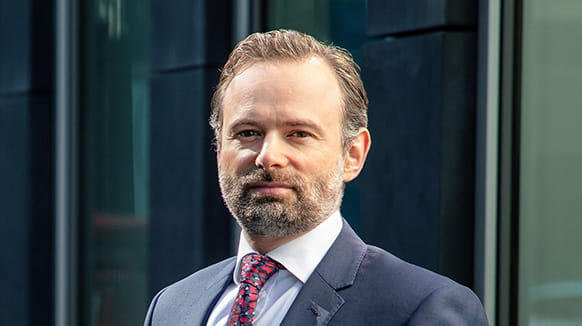Haynes Boone London Partners Glenn Kangisser and Andreas Dracoulis share 10 strategies for handling large-scale and complex litigation or arbitration proceedings in respect of agreements governed by English law.
Glenn and Andreas recently acted for the successful claimant in a London arbitration and obtained an award in excess of USD $400 million following a multi-week hearing conducted virtually and in person. Glenn previously obtained a USD $270 million judgment for the successful claimant in the case of Seadrill Ghana Operations Limited v Tullow Ghana Limited [2018] EWHC 1640 (Comm).
Complex disputes often concern multiple parties, multiple jurisdictions, complex legal issues, lengthy trials and large sums of money. These cases can take years to resolve and often generate very substantial costs for the parties involved.
Fortunately, however, there are a number of strategies to facilitate the handling of large scale and complex proceedings in respect of agreements governed by English law. These will help keep costs and time investment to a minimum.
- The contract is king
When dealing with complex litigation and arbitration, a solid understanding of contracts and the role they play makes all the difference.
It is crucial that those who administer contracts know the contract’s terms and - importantly - how to use them.
More often than not, the party who understands and correctly applies the contract during the relevant project, and ensures all applicable rights are protected, will likely prevail in any subsequent litigation.
Whether or not a dispute has arisen, contract administration training sessions should be implemented with legal advisers at the start of any project and a simple reference guide containing critical time frames and contractual procedures should be circulated to the project team.
- The arbitration clause
If the contract provides for arbitration proceedings, paying attention to the rules and terms of the arbitration clause is key, particularly as regards appointment of the tribunal.
Ideally the contract should provide for party nomination, rather than leaving appointment of the tribunal solely in the hands of an arbitral institution.
In the case of specialist contracts, the contract may even stipulate that the arbitrators must have appropriate experience with its subject matter.
- Team structure
Establishing a core client team and legal team that will establish the strategy, agree on important decisions as the case progresses and provide the means to report internally within the client is a must.
Depending on the case, it may be necessary to establish weekly reporting with task trackers and hold monthly meetings of the core team (ideally, in person) to update on progress, address any important issues and allow for efficient and well considered decision-making.
- Case theory
When dealing with complex disputes, the working case theory should be established at an early stage.
It must be clear why the claim or defence will succeed, where the weak points may lie and how they will be dealt with.
The working case theory should be tested at an early stage and at regular intervals thereafter, ideally with an independent expert or barrister, to avoid confirmation bias.
Furthermore, it is important to be realistic when presenting claims, as bad or exaggerated claims may colour better ones.
- Establishing key supporting evidence early – three points:
a. Key experts should be selected and instructed as soon as possible to ensure continuity and consistency in the presentation of the case.
b. Key fact witnesses should be identified early to determine who will be needed and if they are available. Initial proofs of evidence should be taken as soon as possible to ensure they support the case theory.
c. If it appears that mistakes have been made, they should be addressed head on in the evidence; fact witnesses must be candid when developing evidence.
- Early determination / preliminary issues
In certain cases, it is beneficial to consider whether proceedings can be effectively determined prior to the disclosure and evidence stages, whether by “early determination” or “preliminary issues”.
Early determination may be available where the other party’s case lacks merit. Preliminary issues may be an efficient way of resolving a complex dispute where there are ‘threshold’ points of contract or law which are key to unlocking the whole dispute.
- Documents
It is also of great importance to determine where key documents are likely to be located and make sure that they are retained.
Furthermore, parties should also take steps to avoid creating new documents that might be harmful to the case.
Consideration of the likely technology needed to manage the efficient handling of documents is also crucial, and a plan should be drawn up for various stages of the case, from submissions and disclosure through to evidence and hearing bundles.
A client team dedicated to document handling and related admin with whom your solicitors can liaise directly would be a practical solution to ensure documents and administration are kept in order and up to date
- Costs
Consideration of the likely costs of the process at the earliest possible moment is key, and this should be kept updated as necessary as the case / timetable develops.
In English law proceedings, the successful party usually recovers a significant proportion of its legal costs. A claimant / counter-claimant with a strong case should consider whether litigation funding is appropriate, given the costly nature of pursuing a case.
- Plan, plan, plan
Once a timetable is established, parties should plan ahead - a long way ahead - to ensure that they can meet key milestones.
For example, they should plan the coordination of the provision of documents for disclosure review and ensure the availability of fact witnesses and experts during preparation of evidence.
Extensions to timetables should be avoided unless absolutely necessary to keep costs under control and ensure that hearing dates are preserved.
- Settlement
It is important that parties don’t lose sight of settlement considerations as the case develops.
They must ensure that they are fighting the case if it is justified, taking account of the chances of winning, the cost and time of the process and the prospects of recovering any sums that might eventually be awarded and always having regards to litigation risk.
Ideally parties should maintain a dialogue, but discussions and related correspondence must be kept on a “without prejudice” basis.
Whilst individual proceedings will have their own intricacies and challenges, adhering to a strong set of good practice principles and implementing judicious planning strategies can help ensure disputes are handled efficiently and successfully, and that time and resource are not spent unnecessarily.

